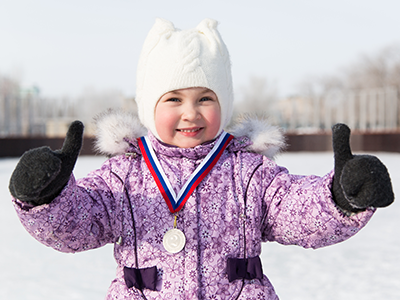During the pandemic, many children became accustomed to staying home and only interacting with their immediate family. Sharing and playing with others was a completely foreign concept to a lot of kids. As a result, many parents, teachers and clinicians have noticed social-emotional delays or gaps for young kids learning basic social skills. But don’t worry, your children are adaptable and are learning, even if they are a little behind. Here are some benefits of preschool play and why you should make sure your children are playing with others.
Lower risk of mental health issues
Now that social and societal activities are returning to a new normal and children can go back to school, it is important that your children are playing and socializing with other peers outside the family. Children learn skills interacting with peers that they may not develop when playing with siblings (e.g., turn taking, moderating emotional responses or frustration, learning to work with others). Research shows that children who play better with their peers are less likely to have behavioral difficulties in the future. Research also shows that children are less likely to fight with their classmates later in life. Preschool play can also lower the likelihood of mental health problems as children get older because they learn the skills to regulate their emotions and cope with new feelings.
Develop crucial skills for the future
You should allow your child to engage in preschool play so that they can produce healthy social skills to create nurturing characteristics such as compassion, empathy and understanding the importance of sharing. These traits can help children establish the social skills required to get along with others, which is essential for their healthy development and most importantly, making friends. By playing with peers your child can learn to share, take turns, manage big emotions and practice new skills that are also applicable to life. They don’t need any fancy toys or devices. What matters is that you make time and space to play every day.
Additional ways to develop social skills for your kids
If you’re having difficulty arranging playdates with other kids or your child needs specific instruction/practice to succeed in playdates, you can also teach your child how to regulate their emotions at home. You can use tools like emotional coping cards, with an emotion on one side of the flashcard and ideas how to work through those feelings on the other. Practice identifying situations and thinking of strategies to cope, practice coping strategies when feeling calm…then build up to practicing the strategies when feeling big emotions. Try to be intentional about teaching coping strategies or skills, especially if you have a child who is more emotionally reactive. You can also create opportunities for practicing turn taking with siblings at home, for example:
- Family game nights (practicing playing by the rules, taking turns, winning/losing).
- Structure free-play time, encouraging siblings to take turns doing the activity their sibling wants to do.
- Practice social skills at family dinner: turn taking during conversation, making eye contact, asking questions and making comments.
- Practice identifying emotions and needs in book characters or TV characters.
- Model strategies you use to regulate your emotions.
Options for possible social interactions with peers outside of the home include story time at the library, playing at the playground, attending a block party or festival or other children’s activities in your community.
 https://riseandshine.childrensnational.org/wp-content/uploads/2026/02/olympics-feature.png
300
400
webteam
https://riseandshine.childrensnational.org/wp-content/uploads/2017/11/childrens_riseandshine_logo.jpg
webteam2026-02-05 16:41:512026-02-06 08:51:52What the Winter Olympics can teach our children
https://riseandshine.childrensnational.org/wp-content/uploads/2026/02/olympics-feature.png
300
400
webteam
https://riseandshine.childrensnational.org/wp-content/uploads/2017/11/childrens_riseandshine_logo.jpg
webteam2026-02-05 16:41:512026-02-06 08:51:52What the Winter Olympics can teach our children


 Laura Gray, PhD, was a clinical psychologist at Children's National Hospital.
Laura Gray, PhD, was a clinical psychologist at Children's National Hospital.


















Leave a Comment
Want to join the discussion?Feel free to contribute!